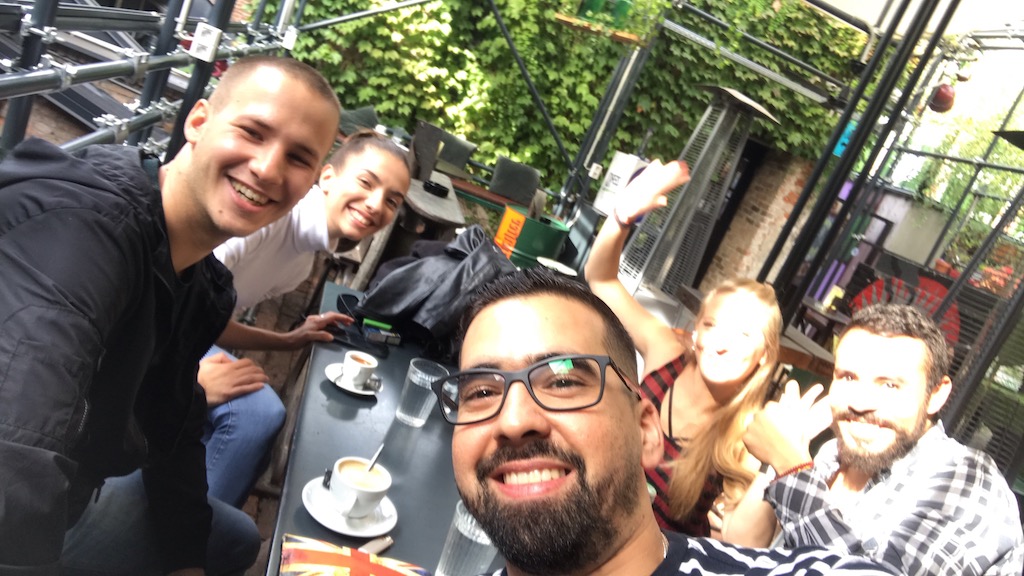Croatian Doctor Accepts Harvard Researcher Position: Alen Juginović Story
Croatian Doctor Alen Juginović, a recent graduate of the Faculty of Medicine in Split, will be leaving Croatia in two weeks to start a Postdoctoral Researcher position at the most prestigious college in the United States.
Dr. Juginović graduated from the Faculty of Medicine in Split in 2018. In September 2019, he was in Houston, Texas completing the second of two US observership programs. Then, he had an idea. Since he was in the US, why not visit the top universities with Neuroscience programs? So, he reached out to the Neuroscience departments at Stanford, MIT, Harvard and Columbia to arrange campus visits.
Harvard Campus Visit Leads to Instant Job Offer
He spent a day and a half in San Francisco and walked among the majestic red-roofed Romanesque sandstone buildings of Stanford University in perpetually sunny Palo Alto. Then he jetted across the country to Boston. After touring MIT, he set off for a visit of the Neuroscience Department at Harvard. With a name tag pinned to his lapel, he met Dr. Dragana Rogulja, an Assistant Professor of Neurobiology. Instead of leading him on a tour of the department, Rogulja, originally from Belgrade, brought Juginović to her office where she began inquiring about his academic background, interests and experience. Two hours later, she offered him a job in her lab.
“Everything was moving in slow motion,” the young medical school graduate recounts. He had a bus to catch to New York City for his planned visit to Columbia University, so he briefly toured his future employer’s lab. They parted ways, and Rogulja promised Juginović that she would give him all the time he needed to think about her job offer. “You’re not dreaming,” she assured him. Upon departing the Ivy League institution, however, the young Croatian doctor was in such a state of shock, that he sat motionless and in a daze while he rode the Boston Metro. Then he realized that he had missed his bus to New York.
Alen Juginović waited over a month to accept the Harvard professor's offer.
Three months later, Total Croatia News received a tip about Dr. Juginović’s job appointment at the most prestigious university in the United States, if not the world.
“I am reaching out to you with an exceptional success story about a young Croatian doctor who, as one of a very small number of Croatians in history, is leaving for the most prestigious university in the world – Harvard! I believe that this story, with all its successes, is very positive, incredibly unique and motivating for everyone in Croatia, especially the young. They will see how it is possible to reach the top of the world from tiny Croatia. I would ask you to consider this ultimate story of medical success for publication in your portal,” the source, overwhelmed with enthusiasm, wrote to us while insisting upon remaining anonymous.
Unique Story Follows Long-Lasting Croatian Tradition
Another story of a young talented Croatian leaving the county for better opportunities abroad; what makes this story so unique and motivating, I wondered. What’s the message for young people? Work hard for a future which only exists beyond your country? That scenario is so commonplace, so predictable – and has flourished without interruption since boatloads of young Croatian emigrants, housed in cramped steerage on majestic passenger steam ships, began making their way in masses across the Atlantic over 130 years ago. Croatian independence, secured in a hard-fought war 105 years later, was supposed to curb mass emigration, not accelerate it. It's worth noting that Alen Juginović was born just a year before the last war officially ended.
The doctor and I agreed to meet at Vincek at 6pm on Friday. I’d passed the dessert café on Ilica many times but had never been inside. Frankly, I could do without the extra calories. I knew that the young doctor would arrive on time, a policy which seems to be hit or miss in this country, so I entered the very bright crowded café right at 6pm. As I meandered past glass cases of cakes and tarts, a lean spry figure passed me on the left from behind. I recognized him immediately, so I quietly followed him to the corner empty table, and waited for him to turn around, so as not to surprise him.
We shook hands and laughed about our simultaneous on-time arrival. He insisted on paying for dessert and coffee, I protested but quickly capitulated, still not entirely confident in Croatian customs. Juginović is a bright, wiry and very energetic figure. We chose sumptuous chocolate desserts, both of which were packed with calories. However, the young doctor, who was comfortably draped in an Adriatic-blue sport coat, white pressed shirt and muted chinos, showed absolutely no evidence of caloric abuse.
Juginović Outlines ‘Hygiene’ of Healthy Sleep Habits
I was pleased to learn that Dr. Juginović’s area of interest is studying and treating sleep disorders, because I’ve read a little about the subject, and could ask a few informed questions. Somewhere during the onset of middle-age, I had become a finicky sleeper. Sleeping a consecutive 8 hours is no longer a given, it has become a much-valued gift. So, we launched into a discussion about “sleep hygiene” as he called it. Admittedly, I was amused by the word hygiene, especially as it relates to Croatia. Try riding a crowded Zagreb tram in July and you’ll immediately know what I’m talking about.
So the young doctor enthusiastically reviewed the necessary components for “sleep hygiene”, some of which I already knew: keep the same sleep schedule, afternoon naps are OK as long as they are shorter than 45 minutes, avoid computers and smartphones (blue light), the sleeping room should not house elements of daily awake life (work-related tools) etc. He then went on to review the stages of sleep, the mechanics of each stage and circadian rhythms. I mentioned that I had read, to my relief, that the concept of a consecutive 7 to 8-hour sleep pattern only came into existence at the turn of the 20th century. Before that, many societies thrived on segmented sleep, with an interim wake period, which was integrated into daily life. He emphasized that sleep cycles are adaptable but that humans are not nocturnal by nature.
Dr. Juginović struck me as someone who lives fully scheduled days where every minute is accounted for, so I steered our discussion toward his autobiography. It unfolds like a resume every job recruiter dreams about (undoubtedly during REM sleep): President of Student Union, founder of NeuroSplit and member of the organizing committee for ISABS conferences.
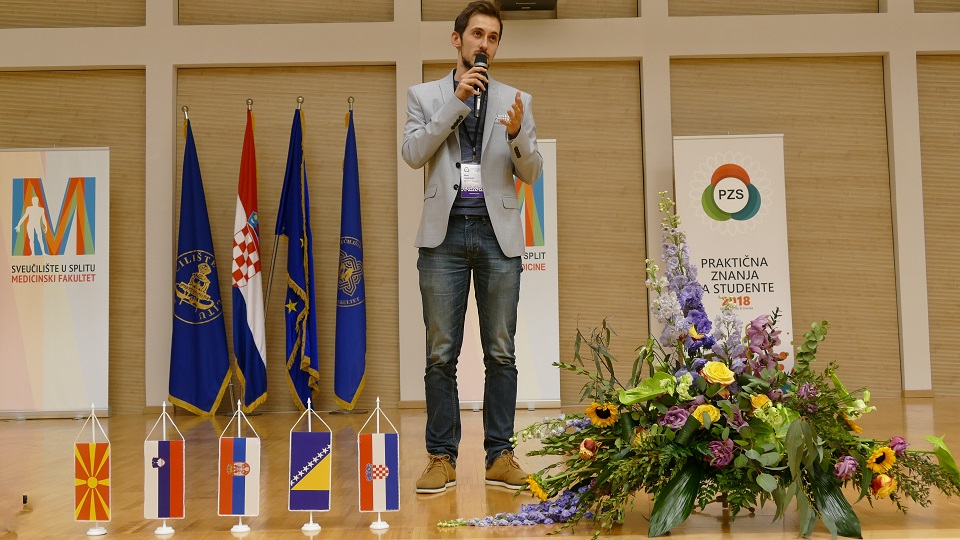
Practical Knowledge for Students | Alen Juginović
Organizer of World Class Medical Conferences in Split
Most notably, he was instrumental in organizing two Split-based world conferences. The first, Practical Knowledge for Students, is an annual event which provides medical, dental and pharmacy students the opportunity to practice key physical functions in their chosen professions: like suturing. Suturing, I thought, don’t students practice how to suture in medical school? Apparently, not enough. As the young doctor pointed out, students only know how to perform many of these tasks in theory. I immediately wondered if this was true for US medical schools too. The conference has been a smashing success and participation has ballooned to over 400 students, who arrive in Split from all corners of the world.
The second conference, Nobel Days, brought together four Nobel Prize winners in one auditorium for panel discussions, which were free and open to the public. The panel comprised of Biochemist Richard Roberts, who received the Nobel Prize in Medicine in 1993; Biophysicist Joachim Frank, who received it in Chemistry in 2017; Physicist Georg Bednorz, who won the prestigious award in 1987; and Harald zur Hausen, a Virologist who received it for the discovery of the HPV virus and its association with cervical cancer. The 500-person capacity auditorium in Split was packed; with standing room only.
He also organized several fundraiser concerts with popular Croatian musicians to upgrade a home for children with special needs and finance improvements to pediatric and other medical facilities.
We briefly touched upon his observerships in Milwaukee and Houston, where he was impressed and surprised by the level of student involvement in extracurricular activities. Juginović considers participation in extracurricular activities essential for students’ well-being. It also brings balance to student life and takes the focus away from just attending classes and studying for exams. There are a lot of students who just spend their free time drinking coffee, he lamented, when they could be engaging with others in areas of personal interest and public concern. He also emphasized that he did not consider high grades to the most important criteria for success and even admitted that he didn’t have a perfect grade point average.
So, Juginović’s autobiography is full of significant and impactful achievements, which he shared with enthusiasm, energy and passion. It wasn’t at all difficult to imagine how he wowed that Serbian professor in Boston, who runs a lab at the most prestigious university in the world. And, their partnership suggests a promising overseas Serbo-Croatian collaboration, which is still a rarity in the homeland.
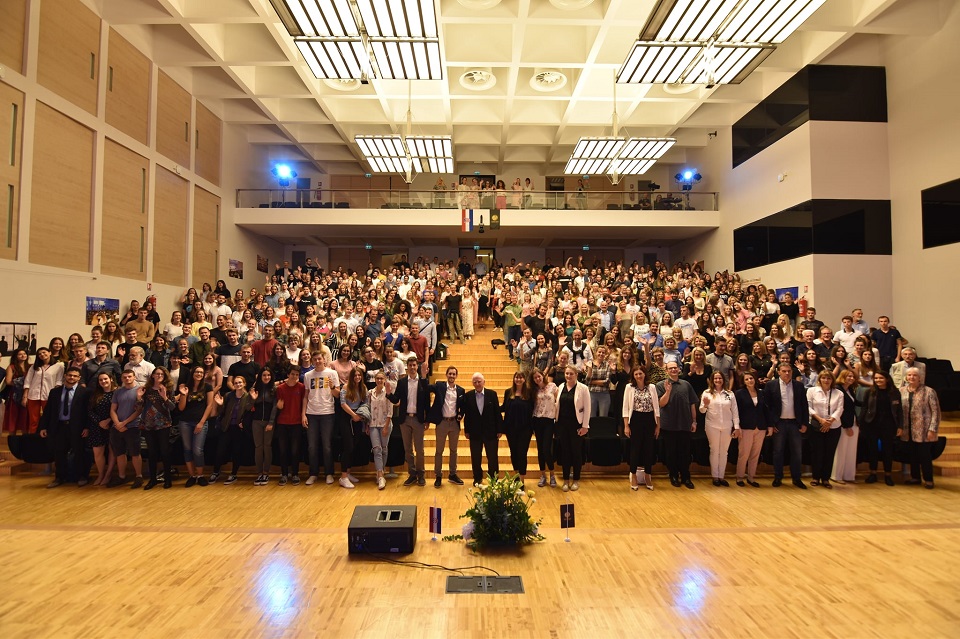
Nobel Days | Alen Juginović
The Croatian Journey to America Spans Over a Century
My grandfather arrived at Ellis Island on the SS Slavonia, which had departed Rijeka on a 19-day journey to America. The trans-Atlantic journey, which he had most likely spent in steerage, was long and grueling, but the young nation was open to everyone who arrived. One hundred fifteen years later, getting into America has become much more complex. One way is to successfully and illegally traverse an increasingly fortified Southern border. Another way is to obtain a H-1B visa, and eventually a Green Card, which can be a complicated affair, and is only expedited by possessing vast financial resources, outstanding individual talent or powerful connections.
In Dr. Juginović’s case, Dr. Rogulja and Harvard will likely process a H-1B visa application which allows a US employer to temporarily hire a foreign worker in a specialty occupation. For a world renown institution like Harvard, that process will likely be streamlined and accelerated, regardless of legal route. It’s worth noting that Croatia remains among just a handful of EU countries for which the US still requires a visa for entry, even as a tourist. However, US and Croatian efforts are now finally underway to abolish that requirement within the next few years.
So, in a little over two weeks the young Croatian doctor will board a plane bound for America. He’ll arrive in Boston in a matter of hours, not weeks, where he will immediately be taken under Harvard’s wing and will undoubtedly surpass their high-performance standards. His job offer comes with a three-year renewable contract, and from there the possibilities are boundless. In the meantime, he must pack for relocation to “The Hub of the Universe”. And HRT (Croatian Radio Television) has just contacted him for a news feature, which will be filmed at St. Catherine’s Hospital in Zagreb, where he remains employed until his departure.
No Long-Term Plans to Return to Croatia Permanently
For a young man who proceeds with such deliberate intention; like organizing significant world conferences with science visionaries and planning personal tours of America’s top universities, I wondered where Dr. Juginović saw himself in the future. Did he consider America a place to expand his knowledge, absorb her best practices, learn from her shortcomings, and return to his homeland to share that vision, knowledge and optimism? Or was America a more permanent destination?
“I don’t think that far ahead, and am open to all opportunities,” he responded, and emphasized that his focus was on the moment and never extended beyond the next day or two. One could not help but sense the empty space that someone, who had been such a daily inspiration to fellow students, would leave behind. Is he coming back to visit, I wondered. He replied that he’d be back during summer break. How does summer break work for a researcher at a university, I thought aloud. Does it follow the academic calendar? He’d probably come back for a week, he answered tentatively and emphasized that his primary passion is to motivate students. “Never underestimate the power of students,” he proclaimed with conviction.
Even if Alen Juginović’s return visits to Croatia are brief and rare, I’ll safely bet that a more refined version of his story, which he shared with me over coffee and dessert, will appear as a TED Talk on YouTube. It’s simply not even a matter of if; it’s a matter of when. And sure enough, it turns out that his future Serbian mentor has already given a TED Talk. Young Croatians seeking motivation will be able to locate inspirational footage of the soon-to-be former Split resident online by a Google search. Some will be enchanted by his fulfillment of the American Dream, a concept which has long ago achieved mythical proportions. Others, perhaps, might be inspired to stay and effect change in their homeland. Dr. Juginović emphasized that his parents and three close friends have been his main source of inspiration.
Saying Goodbye and Reaching Out for Something New
He admitted that the last few weeks have been emotional. Late one night he sat on a bench ten meters from the sea with a close friend and disclosed that he was leaving for America. Without saying a word, the friend simply hugged him. “Everglow” by Coldplay was playing on the car radio on their way home and that song will always commemorate the moment, he reveals. Then he showed me a stunning image of a sunset taken high up in the hills overlooking Split and the Adriatic Sea. The soft horizontal bars of deep blue and orange were broken up by the silhouette of a young man with mussed up hair and the roof of a car. Flickering lights of Croatia’s second largest city, a city that existed long before the arrival of Croatian tribes, dotted the lower right-hand corner of the image. These were among the reflections of a young man saying goodbye.
Near the end of our conversation, we spoke briefly about his favorite songs. In addition to “Everglow”, he mentioned “Purple Rain” by Prince. We immediately agreed that it was impossible to enjoy songs with meaningless lyrics. In that context, “Purple Rain” seemed like an improbable choice, not to mention that the song was a massive worldwide hit a decade before he was born.
Prince explained the meaning of his song to an interviewer as follows: “When there’s blood in the sky – red and blue = purple… purple rain pertains to the end of the world and being with the one you love and letting your faith/god guide you through the purple rain.”
At the beginning of the song, the late musician’s lyrics appear to be directed toward an individual and allude to the end of a friendship. Then he acknowledges that times are changing and “it’s time we all reach out for something new, that means you too.” Had the young Croatian doctor experienced the end of a friendship? We hadn’t gotten that personal, but I suspect that his affinity for this song hinted at a more collective, rather than personal experience. Near the end of the legendary anthem, Prince calls out to his audience:
You say you want a leader
But you can’t seem to make up your mind
If you know what I’m singing about up here
C’mon, raise your hand
Follow our Lifestyle page and Diaspora page for more information on Croatians and their successes abroad. For updates on Dr. Juginović’s pursuits and health advice, follow his Twitter page here.
Five Christmas Traditions from Croatia to California and Back
December 23, 2019 - A look at my family's Christmas traditions, from Croatia to California and back.
Christmas is a holiday that my family has always placed on a pedestal a bit higher than the rest. It was that special day when 50 of our Croatian family members and closest friends gathered at our home in Fallbrook, California. It was a time when we’d run ourselves into the ground cleaning, cooking, and baking for the entire week before. We’d argue over seating arrangements and when my mother toyed with the idea of doing a buffet or switching up the always standard menu. Every detail had to be perfect, and more importantly, our traditions couldn’t stand to be tweaked.
My family’s Christmas traditions are thanks to my grandmother and grandfather, who carried them from Croatia to New York and California. They were unique because they were unfamiliar to those held by the families we knew in the United States, but to us, it wouldn’t be Christmas without them. Over time, and as our dinner parties grew larger, we introduced new appetizers and desserts only to ensure everyone was adequately fed, so long as everything else remained the same.
It didn’t take long for our American friends to adopt some of our traditions as their own, and today, more than 55 years later, I’m happy to say that though we may have moved back to Croatia and our famous Californian-Croatian Christmas parties have retired, we have not strayed away from what makes Christmas ours.
A look at my family’s Christmas traditions, from Croatia to California and back.
Bakalar: It wasn’t Christmas until that package arrived in the mail from my great aunt New York. Growing up, bakalar wasn’t the easiest to find in sunny San Diego, and going to great lengths to get it was our only option. Fortunately, we were lucky to have a core group of family members who ensured we wouldn’t spend Christmas without it. One of the smellier traditions we have, I often recall my brother and I running around the house with our shirts pulled over our noses to hide the stench. It didn’t help. Over the years, we discovered bakalar in the Little Italy district of San Diego and finding fish in the post became a thing of the past. My grandmother only ever prepared bakalar ‘bianco’, and we'd always pair it with a hot cup of our powerful tea punch (a rum and riesling punch that'll have you woozy after one glass).
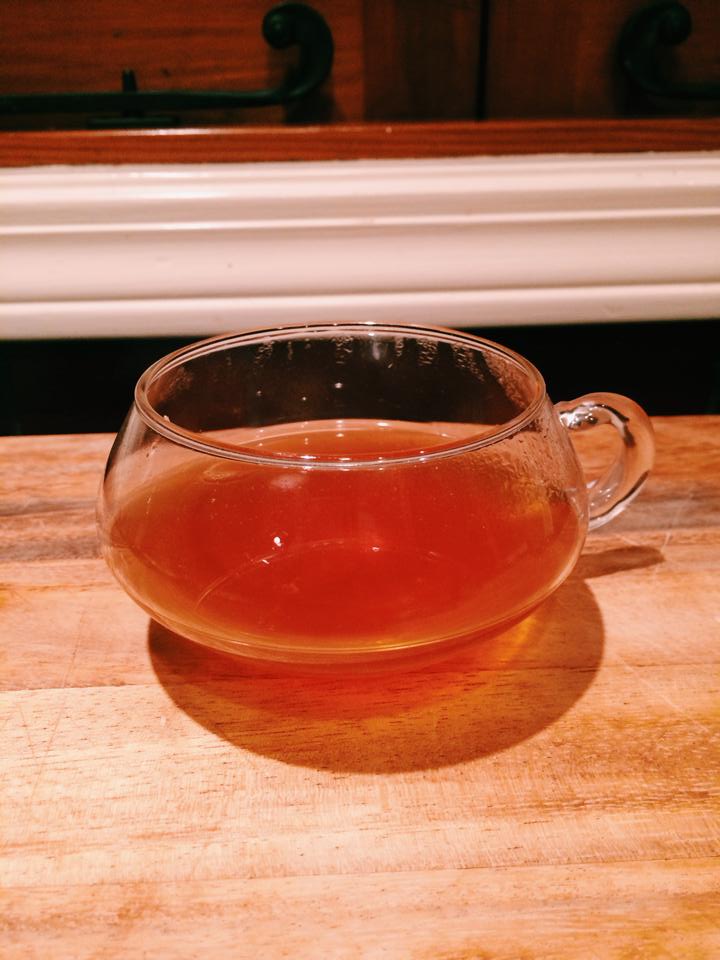
Lobster spaghetti: Bakalar isn’t the only star of our Christmas Eve - because we must down for lobster spaghetti, too. I have many memories of my grandmother in the kitchen peacefully putting the live lobsters to sleep. The secret ingredient to the sauce is Dalmatia’s sweet dessert wine, prošek. Lobsters were a lot easier to find in California, so we’ve amended the recipe to scampi in Croatia instead. It tastes the same, though it’s a bit messier now.
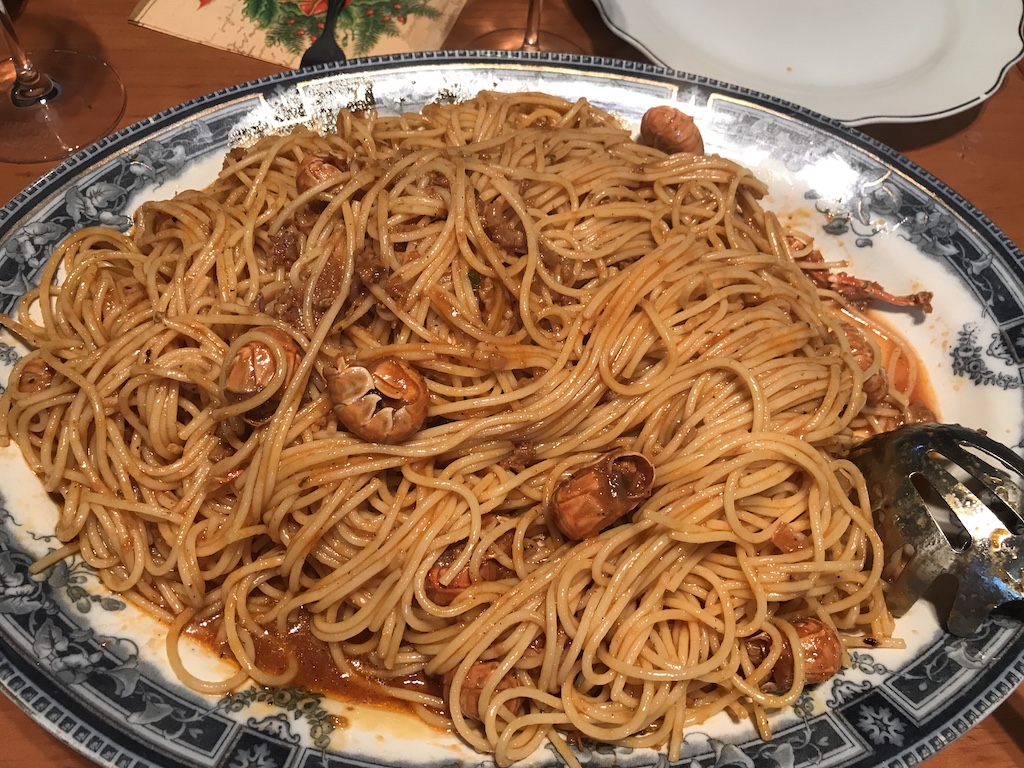
Fritule: Every Christmas morning, without fail, we’d wake up to my mother’s fritule. You could hardly escape the sweet smell permeating through the house, which would eventually lead us to our presents under the tree. My mother’s fritule have a tinge of tang thanks to a citrus zest, while the piles of powdered sugar on top are a dream for any child on Christmas morning. I have a feeling we'll be enjoying Christmas morning fritule for eternity.

Sarma: In true Croatian fashion, our Christmas table featured sarma. My grandmother would count enough to ensure each person had at least two. We’d serve these beloved sour cabbage rolls on oversized platters next to a pot of piping hot mashed potatoes. Perhaps equally as exciting is the smoked meat we’d serve alongside it that cooked in the sarma’s juices. While our Christmas dinners now don’t see as many, sarma still steals the show - and we're always guaranteed at least two.

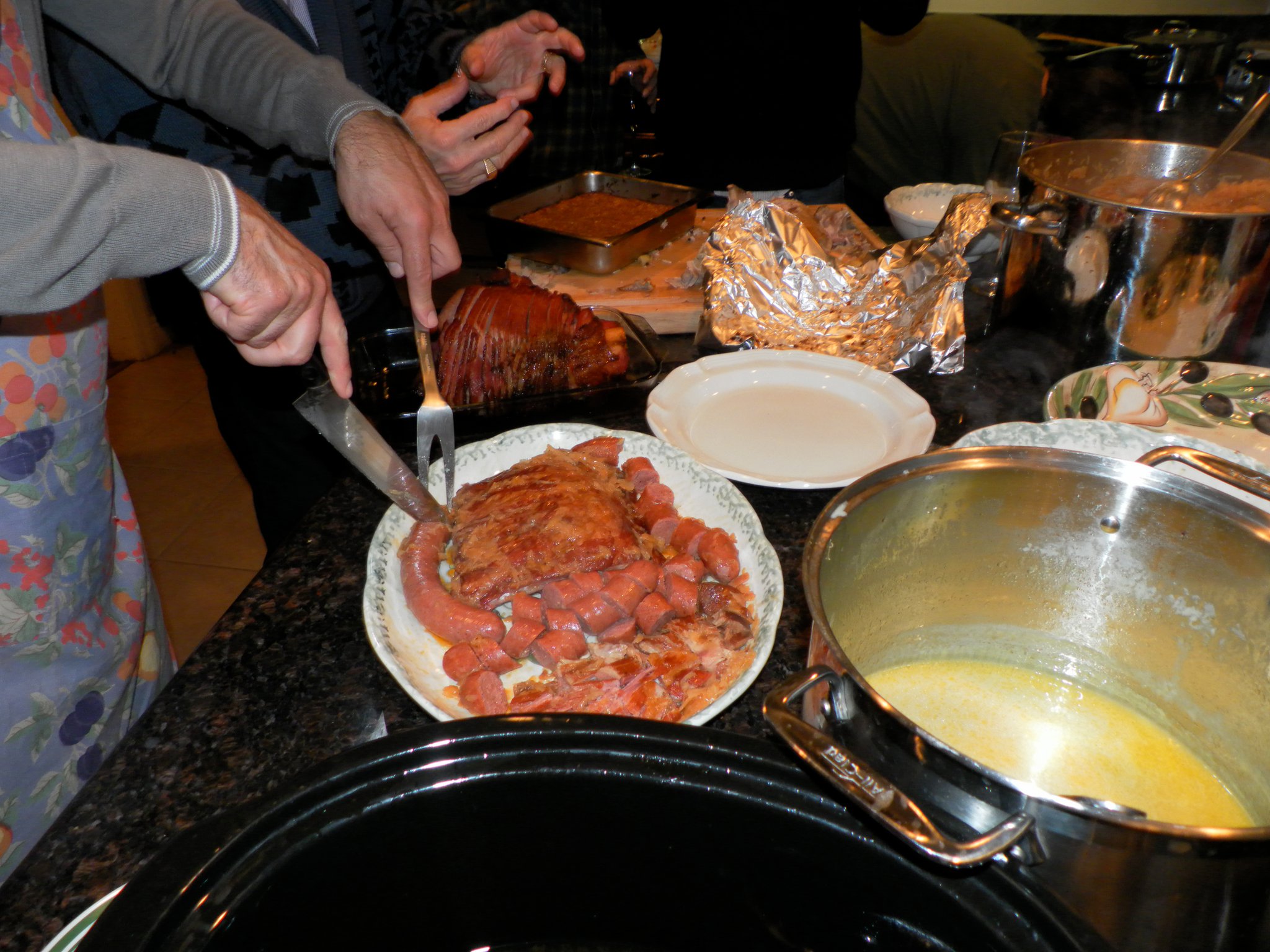
Croatian Christmas sweets: Our dessert table was always stocked on Christmas Day thanks to my grandmother's steady hands that worked day and night for the week before. From vanilla roščići to krokant, linzer cookies, bobići, and rafioli, we had the delightful flavors of Dalmatia in our home for everyone to enjoy. Nothing has changed.
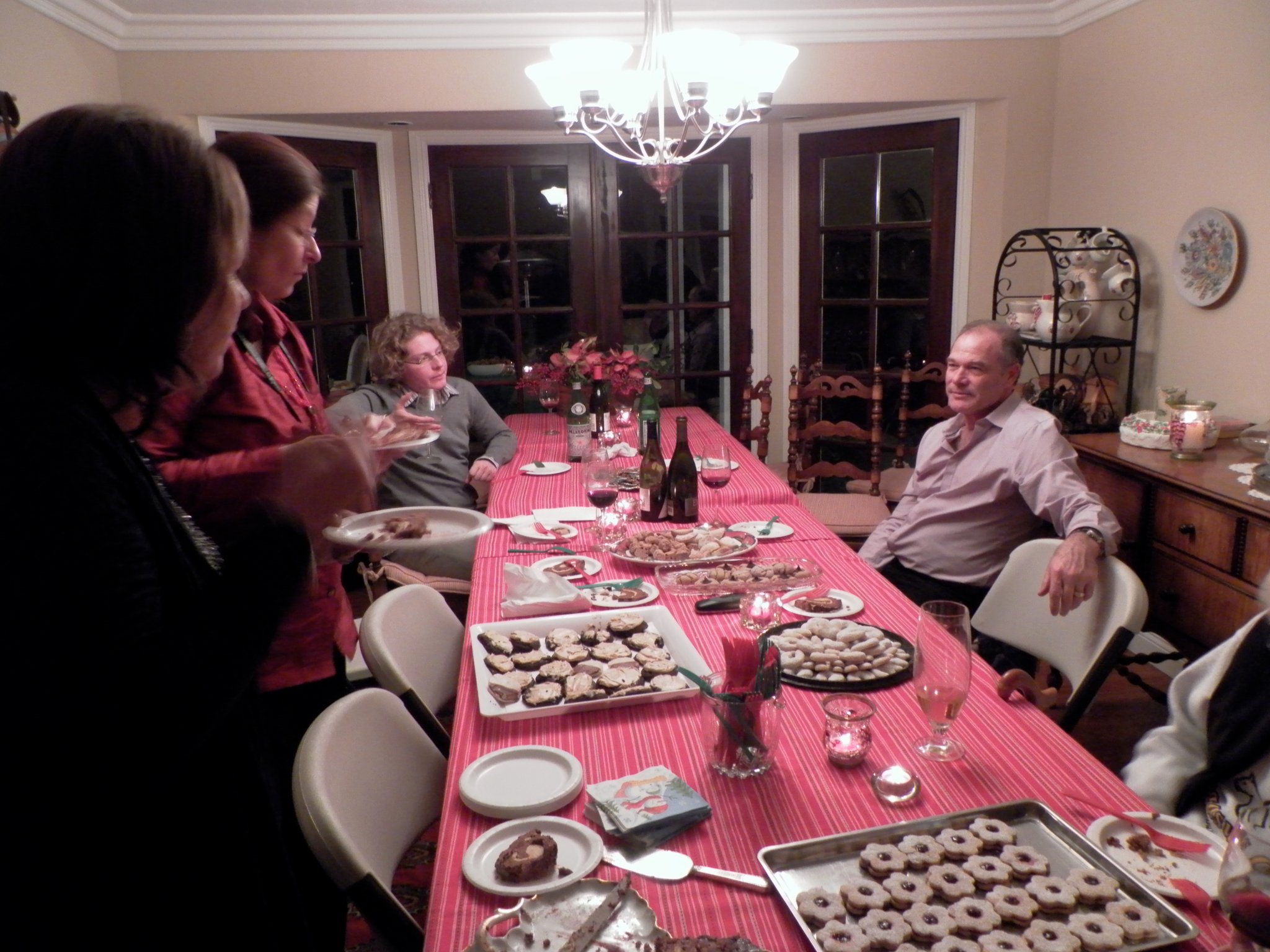
To read more about lifestyle in Croatia, follow TCN’s dedicated page.
True Crime Story of a Croatian Immigrant in California: Jakov Dulcich
Recently, we wrote about a member of the Croatian diaspora who was a villain in a true-crime story. Today, it's time to hear about a very successful Croatian immigrant to California, Jakov Dulcich, who fell victim to violent crime in a somewhat bizarre story.
We all know about numerous Croats who have moved to California and started growing grapevines there. Maybe it's more precise to say that they continued growing grapes and making wine there, as most of them (or their families) were making wine here in Croatia long before moving to the New World.
However, there are other options of what can be made with grapes, Pretty Lady is one of the biggest growers, packers, and shippers of premium California Table Grapes and several raisin products. The company which owns the brand Pretty Lady, called Jakov P. Dulcich and Sons is located in McFarland in California's Central Valley, and was founded and owned by Jakov Dulcich. Mr. Dulcich was born in Argentina, but his parents returned to Brusje on the island of Hvar when he was just a boy.
He grew up on Hvar, and after getting married to his wife Antoinette, he left Hvar, first for Chile and then for California. That's where he founded the company, which grew each year, his sons joined him in the business and now they have thousands of acres of premium table grapes.
All of that would seem like an amazing success story of a Croatian emigrant, were it not for how Jakov's life ended, at the age of 85.
The story is told on Twitter by @kchironis (you can find the thread here).
On April the 11th, 2018, he was driving his SUV and was chased by a Kia, the whole thing was seen by an eyewitness. The witness later told the police that both his and Dulcich's cars swerved off the road and crashed, the driver of the Kia then got out and shot Dulcich point-blank. He tried to kill the witness too, but he managed to escape (it's not entirely clear how, as there were supposedly two assailants, and he just managed to escape them and go to the cops, apparently).
Soon after the incident, police located a burnt car belonging to a guy called Mariano Perez, and the witness picked him out of a lineup, saying that he looked "closest" to Dulcich's killer. Soon after, he retracts that, claiming that he wasn't sure it was Perez, and since there was no other evidence linking Perez to Dulcich's murder, he was found not guilty by the jury. But not even a full month after being released from jail, the suspected killer, Mariano Perez, turns up dead too. He was found with multiple gunshot wounds. His killer was never found.
Then, a few months after that, another weird twist to the story emerged: another employee of Dulcich's company, Rodolfo Elizalde, called the police as his house was targeted by a drive-by shooting, and more than 30 rounds had been fired from what appears to be an AK47-type weapon. Elizalde had worked for the Dulcich's for over 25 years and told the police he was shot at twice before the final incident on his drive back home.
This seems to have been the final incident in the story thus far - if it even is the same story. Jakov Dulcich's killer has never been found. Perez's killer has not been found. It's not known who shot at Elizalde. There were rumours of it starting as a hired assassination of Dulcich, but why then kill the (potential) assassin after he's been found innocent? Does the series of attacks on his long-time employee have anything to do with Dulcich?
Hopefully, there will be a resolution to this mystery (dubbed by @kchironis as "True Grape Crimes"), and if that happens, you'll be able to read all about it on Total Croatia News!
Croatian Night in Frankfurt Features Croatia's Biggest Music Stars
November 12, 2019 - Gibonni, Petar Graso, Mate Bulic, Miroslav Skoro, Domenica, Indira Forza, Prljavo kazaliste, Mladen Grdovic, Klapa Rispet and Zeljko Bebek will perform at the Croatian Night in Frankfurt this weekend.
Namely, Dalmacija Danas reports that Croatia’s biggest music stars can be found in the same place on Saturday, November 16, in Frankfurt, where they will perform at the largest Croatian diaspora concert for an estimated 12,000 Croats and their guests at the Fraport Arena.
“As organizers, we are proud that 'Croatian Night' is recognized all over the world and has established itself as the most significant event of Croats abroad. Every year we strive, and fortunately, we manage to bring the best possible Croatian music team. This year, on the day of the concert, our Vatreni is playing for a spot at the European Championships, and we believe that the support of the 12,000 people in the arena will be felt and heard all the way to Rijeka. We believe that the atmosphere will be special and celebratory at the end of the game,” says Robert Martinovic on behalf of the Croatian Night organizers.
Croatian Night gathers thousands of visitors every year at Frankfurt's Fraport Arena with the biggest music stars from the homeland.
{youtube}v=JQKARWkUPIw{/youtube}
This year, the audience is eagerly awaiting Miroslav Skoro.
“Yet another Croatian Night in Frankfurt will be held this November, and I will have the honor of performing again at the largest gathering of us all outside Croatia. Come and have a good time with us in Frankfurt,” said Skoro.
“We hope that this year, a lot of Croatians from Germany and Europe and all over the world respond and come to the largest manifestation of Croatian music in the world among the Diaspora. It is a beautiful occasion for all of us to gather and socialize. We are honored to have the luck to build even stronger ties between Croatians, those in the Diaspora and in our homeland,” the organizers added.
Just how eager our Diaspora is to experience Croatian music is shown by the fact that they come from all over the world: from Europe, Australia, America, and Canada.
To read more about the Croatian Diaspora, follow TCN’s dedicated page.
Successful Diaspora Returnee Stories: Luis Miguel Zuvic, from Venezuela to Split
October 20, 2019 - Continuing our look at successful returnee stories and experiences from the Croatian diaspora to the homeland, next up Luis Miguel Zuvic on his journey from Venezuela to Split.
1. Born in Venezuela, returned to Croatia, something that many diaspora dream of doing. Tell us briefly about your journey.
I got a scholarship to learn the language, and mostly because of the situation in my country, I decided to take it. After a year in Croatia, I went back to Venezuela, which lasted for just three weeks, and decided to go back to Croatia. I studied for four semesters and got a job in a restaurant in Germany in a small town called Rosenheim. Now I am the chef at Fig restaurant in Split.
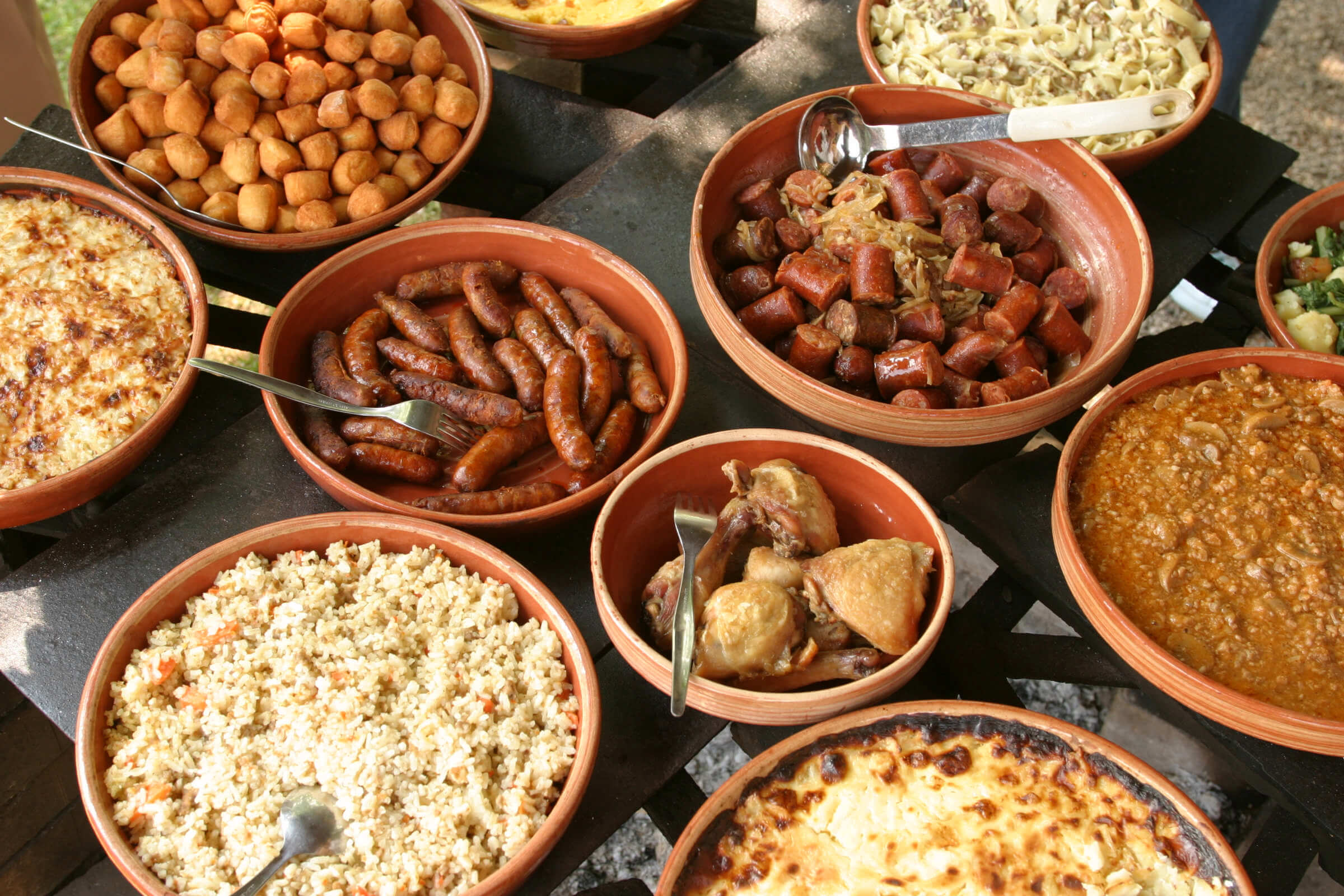
2. Looking back, what were your hopes, expectations, and fears about moving to Croatia?
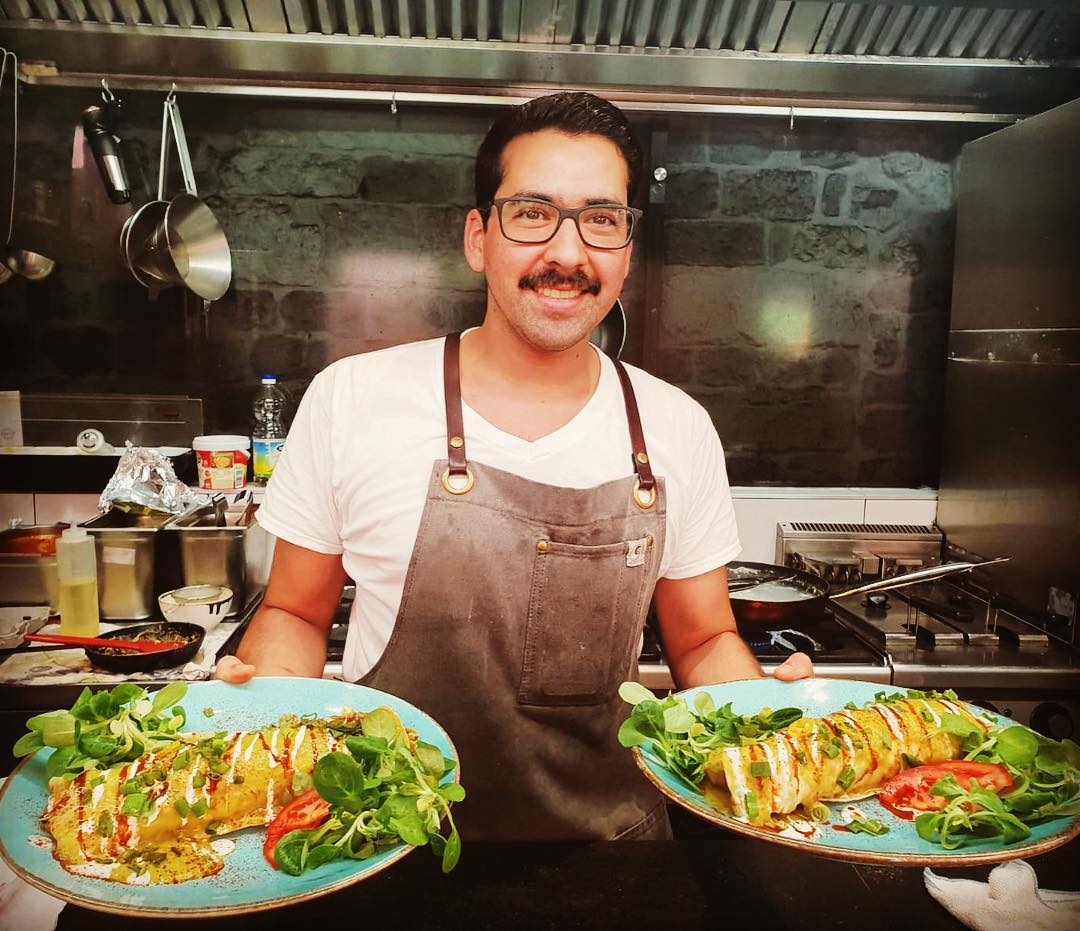
There is not a big Croatian community in Venezuela, but I got a lot of information from families and the Consul of Croatia about the scholarship and life in Croatia.

4. What were the main differences in what you expected to find in Croatia and the reality of living in Croatia?
Everything was as I expected. I read a lot before coming, but it was more impressive to see everything in person than just seeing the pictures.
5. Many diaspora think of returning but few do. In truth, there is little information out there about real-life stories and help/info about the process. What advice do you have for those who are thinking about making the move?
There are different programs and scholarships, and it depends on where you are coming from. The culture is different, but I found that Croatians are similar to South Americans, funny and open people. My advice would be to try and live in Croatia or travel there often to see how you like the Croatian lifestyle.
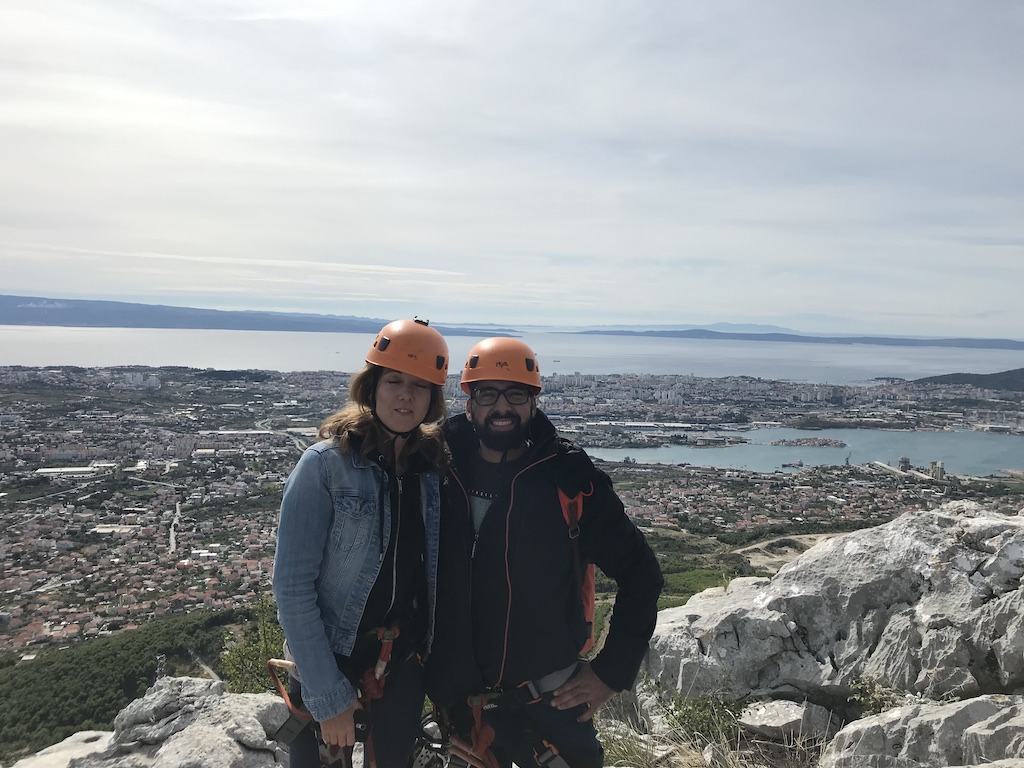
6. How were you perceived in Split as foreigners/diaspora moving back - was the welcome warm?
The welcome was really warm I would say, and in 8-9 months, I made more friends than the last three years in Germany. For many Croatians, it is amazing that I can speak their language. Almost all together I've been here for five years.
7. Through a lot of hard work, you have been very successful, while many foreigners have given up and left Croatia. What are the keys to success in doing business in Croatia, in your opinion?
It was a bit hard at the beginning for me as well. When I had just arrived, I didn't have my Croatian citizenship, so I couldn't work at the beginning. It's just a matter of patience with the Croatian bureaucracy
8. What is the diaspora community like in Split and how integrated is it with locals?
There are a lot of Latinos in Split and Zagreb, who have been living in Croatia. There are a lot of local people who want to learn a different language and culture, and are willing to speak and learn Spanish, for example.
For more on the Croatian diaspora, check out the TCN dedicated section.
Are you a returnee who has moved back to Croatia and would like to be featured in this series? Please contact us on This email address is being protected from spambots. You need JavaScript enabled to view it.
Meeting G2.5 - Let's Build Business Bridges to be Held in Zagreb
This year's MEETING G2 - Gradimo poslovne mostove, Meeting G2 - Let's build business bridges is to take place on November 4th until the 6th, 2019, in Zagreb.
Organised to connect the businesses of Croats in Croatia and the diaspora, the event expects over 200 participants, out of which 70 are expected to be successful international business people of Croatian origin. The participants will be able to learn, among other things, about the successes of the Canadian Croatian Business Network (CCBN), as well as the challenges for Croatian entrepreneurs in Austria.
CCBN has been established to improve and strengthen the relationships between the Canadian and Croatian business people, who wish to expand the potential of business cooperation between the two countries. One of the participants in the panel will be Joe Bašić, who is the president of the CCBN, and he will present the work of the network and their successes at the conference.
In the last nine years, since the network was established, the commerce between Canada and Croatia has gone up more than five-fold (from 127 million kuna in 2010 to 635 million kuna in 2019), that made Croatia one of Canada's leading partners and the biggest one in South-Eastern Europe.
Joe Bašić stated that the members of the CCBN are successful and renowned business people, experts, and entrepreneurs living and working in Croatia, but who have the direct experience of working in Canada. That experience allows them to fully understand the obstacles that might appear and ensures the expertise and the knowledge needed to overcome those barriers and succeed. He believes that further growth in commerce will happen, and especially after the CETA agreement (Comprehensive Economic and Trade Agreement) has been signed, which removes those barriers in various sectors.
Denis Rukavina from Metronet, John Gasparac from PWC, Adrian Beljo from Edward Bernays University College for Communication Management and Dennis Zovko from Importanne Resort Dubrovnik will join Joe Bašić at the panel to discuss the concrete, successful examples of cooperation, as well as the specificities in the way of doing business. They will also offer their opinions on how to help entrepreneurs from both countries to improve cooperation.
A panel organised by the Association of the Croatian Entrepreneurs in Austria will discuss the experiences and challenges of working in Austria.
Several successful Croatian entrepreneurs from demanding sectors, such as IT, law, the hospitality industry and consulting, will offer their thoughts and advice. These include Mario Harapin (Delikro.at), Domagoj Dolinsek (Planradar), Bernard Batinić (Heptabit), Tomislav Stipic (Artus), Tanja Škorić (Startaparat) and Lucija Veličan (Talentarium).
Niko Ilić, the President of the Association, said that Austria is a robust market and that the possibilities for Croatian companies on that market are enormous. That's why the Association is trying to connect the two economies and make it easier for Croatian entrepreneurs to work in Austria. There are 150 members in the Association currently, mostly coming from the construction, metals, tourist, IT, and hospitality sectors, which have the best results. He added that they're also proud that the members of the Association still work actively on the Croatian market as well.
This year's Meeting G2 conference, just like every one before it, is organised under the auspices of the Croatian President, Kolinda Grabar-Kitarović, who will also speak at the opening of the conference.
On the first day of the event, the presentation of the successful Croatian franchises will be held, as well as a pitch session for the startups. The second day will focus on five panel-discussions that will also focus on the successes by the Croatian designers on the international markets, successful Croatian exporters, and current events in the IT world. In addition to the panels, the participants will be able to get to hear several inspirational business stories, including that of Ivan Mrvoš and his smart benches, and Hrvoje Bušić and Tomislav Anadolac, the duo that makes the best gin in the world.
Božo Skoko, a professor at the Faculty of Political Sciences in Zagreb, will discuss the development of the identity and the brand of Croatia, while Natko Vlahović will discuss the importance of the Croatian chairing of the European Union.
You can find additional information on the conference website and the YouTube channel.
Croat Achieves Business Dreams in Canada, Wants to Expand in Croatia
Mateo from Rijeka, Croatia, arrived in the Canadian city of Toronto with some of his personal belongings and five thousand Canadian dollars, three thousand of which were his savings throughout the years, and a thousand dollars were given to him by his family. He didn't know anyone, and he didn't have a recommendation, writes Poslovni Dnevnik on the 8th of October, 2019.
Mateo Polić was born in 1990 in the Northern Ariatic city of Rijeka, where he graduated from school, after that, he graduated from the Faculty of Economics in Zagreb, majoring in Business Economics. While studying in Zagreb, he met a few people who were resident or staying in Canada because of their work, which in some ways expanded his business perspective.
''I got a job offer in one company for 1,600 kuna. It was part of the program of employment of highly educated persons for vocational training without employment. I refused and decided to leave Croatia. Canada was my choice. I applied for a working holiday visa, which at the time was granted once per year, in February, under the "fastest finger" system, without looking for any other conditions.
At that time, the Canadian Embassy issued 275 such visas a year, and several thousand were reported that year. I was literally sitting in front of my computer waiting for a some news and - I succeeded, writes Novi list.
I told myself and them - I'm going to try it, so as to at least use the one year visa. Namely, after a year, 90 percent of people return from Canada because they cannot extend their residence permit in the country. A visa can only be extended if, if you've found a job, and you can prove that you're better than any Canadian applying for that same job, Polić explains.
A few months after obtaining a permanent visa, Mateo decided to move on, to change jobs. He left Michael Page, a company that recruits people for work, something like an employment agency.
''After Michael Page, I joined Shopify, which allows the fast startup of a website where I worked as an in-house headhunter. After three years working for others, in May 2016, I decided to start my own recruitment firm, Accentio Group, and we're focused on marketing and sales. I have two employees, I work five days a week, from 08:00 to 18:00, I'm free on the weekends. So far I'm very pleased, I'm making a decent living. However, I've got no intention of just stopping there,'' Polić told Novi list.
I saved about a thousand dollars a month, and after three years, I decided to invest all my savings from that period, a total of 36 thousand Canadian dollars, into my own business. I took the risk, but it paid off. I now have thirty clients from four countries - Canada, America, the Netherlands and Germany.
I have plans to expand to England, but my wish is to expand to Croatia, says Mateo Polić, adding that at the moment he is not considering returning to Croatia, but does want to open a branch here.
Make sure to follow our dedicated business page for much more.
VIDEO: Scientist With Croatian Roots Creates ''Flying Fish'' Robot
As Goran Jungvirth/Poslovni Dnevnik writes on the 22nd of September, 2019, Mirko Kovač, a team leader for scientists and director of the Aerial Robotics Laboratory at the Imperial College London, has achieved yet another great success by creating a new type of biology-inspired robot. This scientist with Croatian roots has thus created a very unusual invention indeed.
The unusual robot uses water to generate gas and as such, launch from the water's surface. After takeoff, it can travel 26 metres through the air and could be used to collect water samples in hazardous and inaccessible areas, such as during floods and to control the pollution of the world's oceans, seas and rivers.
Robots that can transition from water to air are desirable in situations such as the above-mentioned scenario, but when it comes to really making them move, it takes a lot of power, which is much more difficult to achieve for small robots.
Now, researchers at the Imperial College London have, under Kovač's direction, invented a system that requires only 0.2 grams of calcium carbide powder in a combustion chamber. The only moving part is a small pump that brings in water from the surrounding environment, such as a lake, river or, ocean. The collected water and the calcium carbide powder are then combined in the reaction chamber, creating a flammable acetylene gas. As the gas ignites and expands, it displaces the water like a jet, which pushes the robot out of the water and gives it energy to fly up to 26 metres.
"The water-to-air transition is a process that requires a lot of energy, and this is difficult to achieve with small vehicles that need to be light when they're in flight. We used water-responsive chemicals to reduce the materials the robot needed to carry. Because the chamber is filled passively and the water from the environment acts as a piston, we can create a full combustion cycle with only one moving part, which is a pump that mixes water and fuel," Mirko Kovač, a robotics researcher with Croatian roots who has researched robots at prestigious universities such as Harvard and Berkeley, told Poslovni Dnevnik.
The robot, weighing a mere 160 grams can "jump" multiple times after filling up its water tank. This can allow it to hover over water and take samples in multiple locations without needing to use additional power, thus successfully saving energy over greater distances compared to an electrically driven robot.
Today, a team of experts led by Dr. Kovač work with their partners in Switzerland to build new vehicles using advanced materials, and field trials of robots in a variety of environments are underway, including monitoring the ocean around coral reefs and coastal energy platforms.
Mirko Kovač is, as mentioned, a Swiss of Croatian roots, and this year Poslovni Dnevnik interviewed him to discuss the potential of robotics development here in Croatia. He then participated in the international DroneDays conference held at the Faculty of Electronics and Computing in the City of Zagreb.
The new Swiss Centre was created in collaboration with the London Laboratory, which Kovač included in collaboration with the FER Laboratory for Robotics and Intelligent Control Systems.
Because of this collaboration, which has been going on for several years now, the Zagreb and London laboratories were awarded the AeRo Twin project from the EU's Horizon 2020 EU research and innovation program, pushing them rightfully to the very top in the fast paced and ever advancing world of robotics.
Various lectures will be organised, as well as an exchange of scientists, and roboticists from Croatia will be staying in London to see what they can do in a similar sense in Zagreb.
Make sure to follow our dedicated lifestyle page for much more.
Owner of Korčula Boutique Hotel: ''I Came Home and Fulfilled My Dreams''
As Novac/Dora Lozica writes on the 25th of August, 2019, Novac met Zlatko Fabris, 41, at his hotel on Korčula, engrossed in figures and tables. He received the journalists cordially, though limping, telling them that he had injured his leg when splitting firewood, he had to undergo surgery, but that there's no time for that now!
When the season starts, there's no time for health either, Zlatko says, only work! The times of hotel owners simply sitting back and watching as hotel and restaurant workers do the hard work have passed.
With this philosophy, Zlatko came from South Africa to beautiful Korčula exactly fifteen years ago. Born in South Africa, Zlatko has always dreamed of one day returning to his roots, his old Korčula surname, Fabris, called him back to the Dalmatian island. However, it was not easy to decide to come to Croatia without knowing the language and the everyday ways of life, Fabris revealed.
His family is engaged in construction and tourism, but South Africa's dark history of the coexistence of blacks and whites was turbulent, to say the very least.
''Back there, people will put a gun to your head there for money,'' Zlatko admits, so he decided to come to Korčula, hoping to find his peace there and a place where life is worth more than just money. And he wasn't mistaken. First, he tried his best to learn the Croatian language, because how can someone named Zlatko not speak Croatian!? It's simply impossible! And then he got to grips with what's best for him - his business, writes Slobodna Dalmacija.
With his initial capital, he bought a house on Plokata, the main town square in the very centre of Korčula. He bought the house from the City of Korčula itself, who then bought the birth house of Marco Polo with that money. The house soon became the famous "Happy House" hostel, with dozens of backpackers staying overnight. There was always a loud and cheerful atmosphere at "Happy House", Zlatko admits they had a good time with alcohol, song and laughter, but that it annoyed the people who lived nearby.
''They were absolutely right and I understood them one hundred percent, I started thinking how I could change the concept. I have to say, hats off to the team from the Lešić Dimitri Hotel and the Korsal Hotel, they were the first to start the story of the boutique hotel, they had the courage to do it first.
When one begins, the other is encouraged, and in 2015 one of them was me. The Fabris opened its doors,'' Zlatko says, referring to his four-star boutique hotel, which is not really a hotel because it has no elevator. Namely, in order to register his facility as a hotel, he has to have an elevator for four floors, and circumstances don't allow him to install an elevator, so he calls his facility simply "The Fabris''.
But "The Fabris" is, after all, a small "boutique" four-star hotel.
Increasingly, the term "boutique" hotel can be heard in Croatia as an ideal destination for those who, in addition to their holidays, want to experience and know more about the destination they're visiting.
"Boutique" or "lifestyle" hotels are a new trend of tourist offer, only a few decades or so old. They are smaller in capacity, but are designed in a luxury and indigenous style, relying on the values, culture and customs of the area in which they are located.
This was exactly the concept that Zlatko used to manage the interior of his building in Korčula, so he could leave everything in its original form when it was renovated. The interior walls, as well as the exterior ones, are made of antique stone, and the stairs, floors, beds and openings are made of solid oak. In all the bathrooms, there is a combination of stone and glass, the floors are adorned with expensive carpets that Zlatko brought from different parts of the world, while on the walls are old photographs of the Fabris family, which tell the visual stories of formerly world-renowned Korčula shipbuilders, including Zlatko's great-grandfather.
"The Fabris" is an attractive yet relaxed blend of tradition and a modern, minimalist approach. Zlatko didn't make the mistake of taking his initial success for granted, and last year, he decided to make another investment. About ten metres from the hotel, he bought another abandoned ruin in the heart of Korčula.
With an investment of one million euros and a lot of hard and dedicated work, that ruin has been transformed into "The Fabris 2" this season, with eleven luxurious rooms decorated in the same tone as the first hotel. The capacity of "The Fabris" is currently 21 rooms, with a rating of 9.4 on booking.com. His guests are delighted, they don't want an industrial environment, but the ability to enjoy Korčula's history, architecture and authentic culture. Most of Zlatko's guests are English-speaking, as many as 80 percent of them.
Zlatko does not take all the credit for his success.
''In the season, I employ 11 people for 6 months, half of them for longer than that. They do a fantastic job and it's important to me that they have good salaries. Money motivates people and if you want loyalty and quality, you have to pay. In addition, I want people on the island to live well all 12 months of the year, I wish that every year I could travel somewhere to get to know other countries and cultures so that they would be good hosts themselves. Yes, the season has been 30 percent weaker, but that's temporary, next year, it will be even worse, So, 2015 or 2016 will happen again. You just have to always do your best,'' Fabris explained.
''I believe in Croatia and our future. We're not just any old country or any old city, we have centuries of culture and history and this is our strongest asset. We quarrel with each other, but when there is a serious problem, we are one. I think the workers from the hospitality sector from the island need to meet once a month, we have to have a common plan and strategy, stick together and help one another. From the first day, the Korčula locals have accepted me just as I am, and I'm grateful to be able to live and work here,'' Zlatko concluded.
Make sure to follow our dedicated travel, lifestyle and Croatian diaspora pages for much more.
Follow the Journey of Kristiana Banđen on Croatia's First Domovina Birthright Program
June 30, 2019 - An excellent initiative to bring the diaspora in closer contact with the Homeland starts next month. Follow Kristiana Banđen on her journey on the inaugural Domovina Birthright Program.
As previously reported on TCN, the first Domovina Birthright Program will take place next month, an initiative between the American Croatian Association of Professionals, and the Croatian Government. The idea of the program is to take the young adults of Croatian descent (ages 18 – 30), who wish to learn about their heritage, explore Croatia, connect with their Croatian identity and meet other young Croatian adults on an amazing trip to Croatia.
We are delighted to welcome Kristiana Banđen to TCN. Kristiana is one of the 34 initial participants in the program, and she will be documenting her journey as she explores the country of her heritage. Here she is, introducing herself.
Follow the journey through the Domovina Program
This year, the Association of Croatian American Professionals (ACAP) has partnered with the Croatian government to announce the Domovina Birthright Program (DBP). The DBP is a unique, historical 16-day cultural and educational immersion tour of Croatia created to allow young Croatian adults the opportunity to explore their country while learning about their Croatian heritage and explore their identity with 33 other chosen participants.
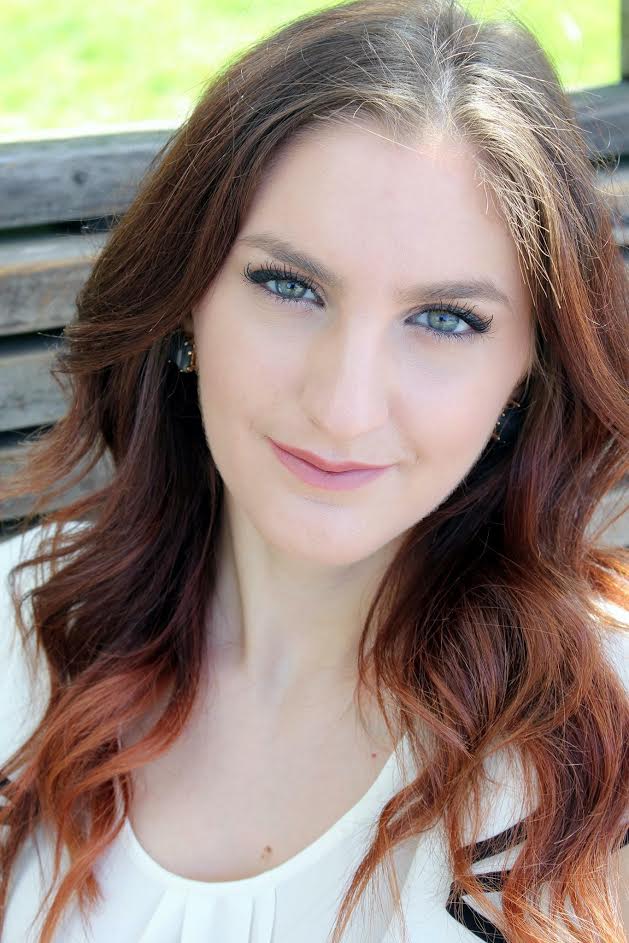
This is the first year that the DBP has been announced and having been one of the chosen participants, I will be writing an insight into the program and its daily activities.
>Born in Canada, both of my parents were born and raised in Croatia. I have chosen to apply to participate in the program to be able to further explore my country in a way I have never been able to before. This cultural experience will be eye-opening and I wish to share our adventures in the hopes to create excitement for the program in young Croatian adults. Being the first year the program is being held, I hope to aid in the success of the program and in generating interest for future participants to apply.
Commencing on July 10th and ending on July 25th, follow my journey throughout the Domovina Birthright Program exploring sites of cultural and historical significance and in varied hikes of Croatia’s landscape and nature.
To follow more from the Croatian diaspora, follow the dedicated TCN section.

